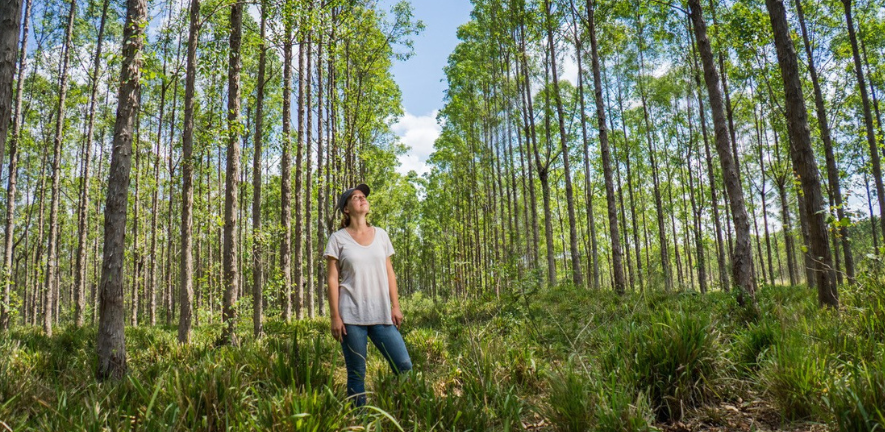
Submitted by Anonymous on Fri, 02/02/2024 - 16:37
Dr Rachael Garrett is Moran Professor of Conservation and Development in the Department of Geography at the University of Cambridge. She is also a member of the Global Food Security Steering Committee.
She has 15 years experience studying agricultural processes in Latin America (especially soy, beef, dairy, and coffee production), Indonesia (oil palm), West Africa (cocoa), Switzerland (apples) and Georgia (specialty crops, household fuel use). Her research examines the drivers and impacts of land change, primarily in forest landscapes, and the effectiveness and equity of forest conservation and sustainable agriculture policies and practices. More broadly she is interested in developing socio-bioeconomies that address environmental and social injustices and help empower women and youth.
She told us about her work, her favourite research tools and how she would like to be remembered.
My training spans economics, geography, public policy, development, and environmental science. I am an interdisciplinary social scientist with a focus on conservation and sustainable development.
I am focused on finding policy, technology, and market solutions that help conserve and restore forests and improve the sustainability of agricultural production and supply chains.
I am particularly interested in envisioning and achieving just transitions in economies that help overcome perceived tensions between social and environmental goals in the domains of conservation and food security. In the policy space I work on public regulations, voluntary private certifications and supply chain policies, and public and private finance.
My favourite research tool is conducting interviews with farmers. There is nothing more invigorating and insightful than talking to the people who are so critical to our global food chains and have such an important influence on the wellbeing of rural communities, global climate, and biodiversity. More broadly, I am large proponent of mixed methods, both across qualitative and quantitative approaches as well as approaches that link scales (from international to local domains).
I would like to be remembered for my deep engagement with scientists and communities from tropical countries, in particular with Brazil, and for fostering pipelines that help promote diverse scientists from tropical countries and within the UK.
I would also like to be remembered for making a meaningful contribution to changing economic and land use policies in the tropics to help promote just transitions and the development of socio-bioeconomies that help upscale equitable nature-based solutions.
Photo credit: Gabriel Sap for BU Photography

